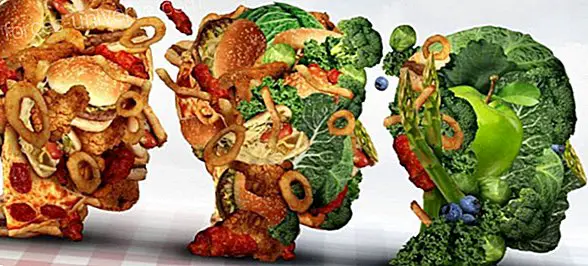Do you know what is resilience? Do you want to learn to be more resilient?
 Sometimes life puts us to the test, it poses situations that exceed our abilities: a disease, a particularly painful breakup, the death of a loved one, the failure of a long-awaited dream, economic problems ... There are different circumstances that we They can take the limit and make us question whether we have the strength and the will to continue forward. At this point we have two options: let ourselves be overcome and feel that we have failed or overcome and come out strengthened, bet on resilience.
Sometimes life puts us to the test, it poses situations that exceed our abilities: a disease, a particularly painful breakup, the death of a loved one, the failure of a long-awaited dream, economic problems ... There are different circumstances that we They can take the limit and make us question whether we have the strength and the will to continue forward. At this point we have two options: let ourselves be overcome and feel that we have failed or overcome and come out strengthened, bet on resilience.
Resilience: definition and meaning
Resilience is a capacity that allows us to face crises or potentially traumatic situations and get stronger from them. Resilience implies restructuring our psychological resources based on new circumstances and our needs. In this way, resilient people are not only able to overcome the adversities they have had to live, but they go one step further and use these situations to grow and develop their potential to the fullest.
For resilient people there is no hard life, but difficult times. And it is not a simple terminological disquisition, but in a different and more optimistic way of seeing the world since they are aware that after the storm comes calm. In fact, these people often surprise by their good mood and make us wonder how it is possible that, after all that has happened, they can face life with a smile on their lips.
How can we be more resilient?
Resilience is not an innate quality, it is not printed in our genes, although there may be a genetic tendency that may predispose to having a “good character”. Resilience is something we can all develop throughout life. There are people who are resilient because they have had in their parents or someone close a model of resilience to follow, while others have found the way alone. This tells us that we can all be resilient, as long as we change some of our habits and beliefs.
In fact, resilient people are not born, they are made, which means they have had to fight against adverse situations or have tried the taste of failure several times and have not given up. By being on the edge of the abyss, they have given their best and developed the necessary skills to face the different challenges of life.
What characterizes a resilient person?
They are aware of their potential and limitations. Self-knowledge is a very powerful weapon to face adversities and challenges, and resilient people know how to use it in their favor. These people know what their main strengths and abilities are, as well as their limitations and defects. In this way, more objective goals can be drawn up that not only take into account your needs and dreams, but also the resources available to you to achieve them.
They are creative . The person with a high resilience is not limited to trying to hit the broken vase, he is aware that he will never be the same again. The resilient will make a mosaic with the broken pieces, and transform his painful experience into something beautiful or useful. From the vile, take out the precious.
They trust their abilities . Being aware of their potential and limitations, resilient people trust what they are capable of doing. If something characterizes them is that they do not lose sight of their goals and feel confident of what they can achieve. However, they also recognize the importance of teamwork and do not confine themselves, but know when it is necessary to ask for help.
They assume difficulties as an opportunity to learn . Throughout life we face many painful situations that demotivate us, but resilient people are able to see beyond those moments and do not faint. These people assume crises as an opportunity to generate change, to learn and grow. They know that those moments will not be eternal and that their future will depend on the way they react. When faced with adversity they ask themselves: what can I learn from this?
They practice mindfulness or full consciousness . Even without being aware of this millenary practice, resilient people have a habit of being fully present, of living in the here and now and of having a great capacity for acceptance. For these people, the past is part of yesterday and is not a source of guilt and anxiety while the future does not stun them with their share of uncertainty and worries. They are able to accept the experiences as they are presented and try to get the most out of them. They enjoy the small details and have not lost their ability to be astonished at life.
They see life with objectivity, but always through an optimistic prism . Resilient people are very objective, they know what their potentialities are, the resources they have within their reach and their goals, but that does not imply that they are not optimistic. Being aware that nothing is completely positive or negative, they strive to focus on the positive aspects and enjoy the challenges. These people develop a realistic optimism, also called optimism, and are convinced that no matter how dark their day is, the next day may be better.
They surround themselves with people who have a positive attitude. People who practice resilience know how to cultivate their friendships, so they generally surround themselves with people who maintain a positive attitude towards life and avoid those who behave like emotional vampires. In this way, they manage to create a solid support network that can sustain them in the most difficult times.
They do not try to control situations. One of the main sources of stress and stress is the desire to want to control all aspects of our life. That is why, when something escapes us, we feel guilty and insecure. However, resilient people know that it is impossible to control all situations, they have learned to deal with uncertainty and feel comfortable even if they do not have control.
They are flexible to changes. Although resilient people have a very clear self-image and know exactly what they want to achieve, they also have enough flexibility to adapt their plans and change their goals when necessary. These people do not close to change and are always willing to value different alternatives, without obsessively clinging to their initial plans or a single solution.
They are tenacious in their purposes. The fact that resilient people are flexible does not imply that they renounce their goals, on the contrary, if something distinguishes them, it is their perseverance and their ability to fight. The difference is that they do not fight against windmills, but take advantage of the sense of the current and flow with it . These people have an intrinsic motivation that helps them stand firm and fight for what they set out to do.
They face adversity with humor. One of the essential characteristics of resilient people is their sense of humor, they are able to laugh at adversity and make a joke of their misfortunes. Laughter is your best ally because it helps them stay optimistic and, above all, allows them to focus on the positive aspects of situations.
They seek the help of others and social support. When resilient people go through a potentially traumatic event their first objective is to overcome it, for this they are aware of the importance of social support and do not hesitate to seek professional help when they need it.
Resilience in children
If we want our children to face the difficulties of life with strength, it is important to educate them in the capacity to be resilient, for this our example is fundamental, not overprotecting them and above all believing in them. It is not about preventing them from falling, but about teaching them to get up, and for that we have to trust that they can. Of course, it is not about exposing them to dangers or aggressive environments "so that they become stronger", fortunately we are not in Sparta. Providing security and protection is necessary. Something important that we can ask children when they have a setback if we want them to learn to develop resilience is what can you learn from this? Or what can you get good from this that has happened?
By Rosario Linares
elpradopsicologos.es
Source: http://www.preparemonosparaelcambio.com
Resilience: The 12 habits of resilient people






